
Did you know 75% of people don’t revisit a restaurant they’ve had a bad hygiene experience at?The importance of hygienic food practices cannot be emphasized enough.
Hygiene isn’t just about standards and following SOPs; it has to do a lot in building your brand image, customer footfall, and keeping you in the restaurant business!
The demand for hygiene and safety has further been raised since 2019. Today, food businesses have to thrive even harder to ensure their practices are safe and provide the highest possible standard of hygiene for all their indoor dining, dine-outs, and even contactless deliveries.
How to Maintain Hygiene and Cleanliness in a Restaurant

Now the least any walk-in person would expect is clean, hygienic food, furniture, and floors they walk on. In fact, as per a report, this factor alone is even more important to a customer than the price and food quality itself.
So if you want to stay in the food business, you better up your game now. Here’s how you can do it:
Ensure Regular Cleaning

So foremost, you need to have sufficient stock of cleaning essentials at all times. Since your place is open for the public, you need to prepare for spills, vomits, cleanups, and, of course, sanitization.
So, make a list of all the cleaning supplies you need and get your store replenished. Make sure you have stuff in excess to make up for sudden emergencies.
Further, you should conduct - or appoint someone to do - a regular, thorough inspection of the dining area, kitchen, and restrooms.
Make sure that:
- Food is prepared in the most hygienic way possible, including handling, cleaning the counters, cooking ware, etc.
- The cooking staff shouldn’t smoke, eat or drink in the kitchen.
- All dining tables and floors should be thoroughly cleaned every time a customer leaves or periodically, depending on the flow in your restaurant.
- Clean using cleaning wipes or clean cloths.
- Ensure sterilization of the baking utensils, refrigerator, freezer, cooking range, oven, etc.
- Sterilize cutting boards and other kitchen appliances and utensils.
- Floors should be mopped, especially by all the entrances and exits.
- Ensure the restrooms are clean, including the sinks and toilet bowls.
Staff Hygiene Practices
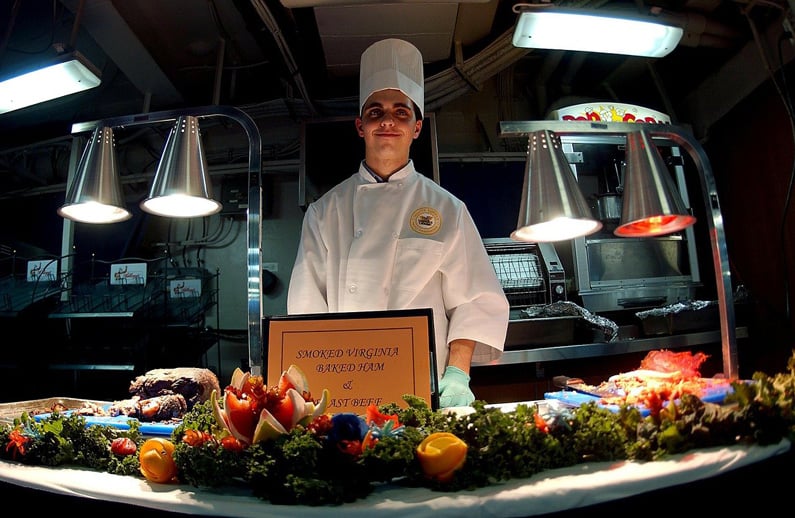
Cleaning is not just a one-time practice; you cannot just clean up all the nooks and crannies and expect the place to look the same forever. You need thorough, regular maintenance, and for that, you need to train your workforce accordingly.
Here are some ways to get a clean space and trained staff.
- First, give your team all the hygienic equipment they need to do the job. That includes gloves, aprons, clothing or uniforms, hairnets, etc.
- Conduct training both in-house as well as outsourced training.
- Instruct the workers to wash and dry their hands frequently. That includes before meal prep, before and after serving, and even between tasks. Also, the nails and attire should be clean and proper.
- Uniforms! Keep a strict check on uniforms. They must always be clean, without any stains or marks, and ensure the staff has a change-up after every shift.
- Ensure sanitization: the dining area should be sprayed with a good sanitizing spray. Plus, affix a few sanitizers around the place. Make sure the staff sanitizes their hands every few hours when on duty.
- Ensure the gloves too are changed, with the old ones disposed of regularly.
- Ask the staff to avoid wearing jewelry like solid rings, bracelets, etc.
- If there are any wounds or cuts, ensure they are adequately bandaged and covered up.
Cleaning the Kitchen
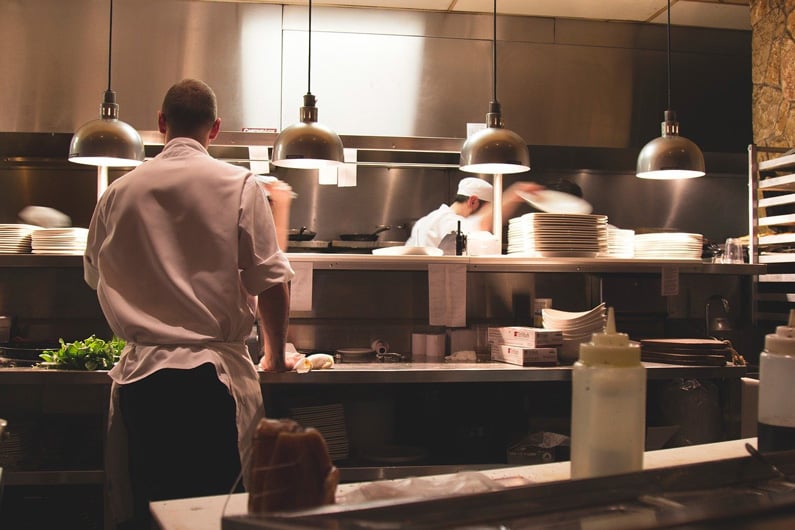
You need routine, regular maintenance of the kitchen to ensure that:
- Everything is spick and span.
- All the kitchen appliances and other equipment work fine.
But you need to follow a rigorous approach to ensure there is regular maintenance of everything involved in preparing the meal, cooking it, all the way to serving it on the tables.
Next, your staff also needs some hands-on training on the working of the equipment. That ensures the equipment is handled the right way, thus increasing its life. Further, maintained equipment runs more efficiently than mishandled equipment or inappropriately used.
Also, whatever equipment, appliance, or surface the food touches (especially raw poultry, fish, etc.) must be cleaned and sanitized correctly. That will help reduce the chances of the spread of bacteria or other germs.
Here are a few pointers to keep things working and clean in the kitchen:
- First, take out the trash regularly. Don’t wait for it to pile up.
- Use separate cutting boards for veggies, poultry, seafood, etc.
- Clean and wash the lining food preparation places.
- Thoroughly clean all the cooking equipment inside out.
- Keep a stock of mops, cleaning solutions, wipes, cleaning brushes, sanitizers, etc.
Food Storage
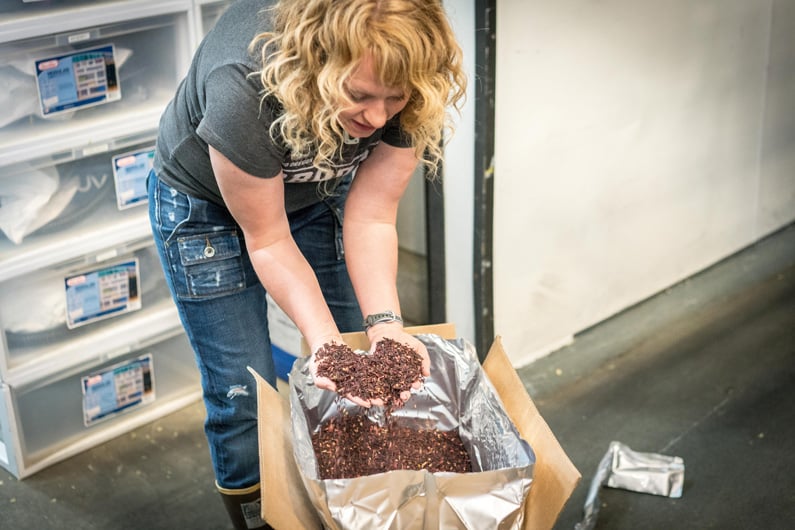
You should also ensure that the food is stored the right way. That includes all kinds of food like bread and buns, meat, chicken, spices, vegetables, etc.
These items should be stored in a way that there are the least possibilities of mold buildup or rotting away.
Next, train the staff about how to heat these foods too. You need different temperature and oven settings to heat and cook these foods. Make sure it’s done right!
Checklists!

Checklists are a great way to ensure nothing is missed. Make a hygiene checklist for your place that may be a general list or a long, detailed one. However, the more detailed it is, the better you’ll be able to keep track of things.
A checklist can come in handy for the staff too. They can have a written set of tasks to do and check for on a routine basis.
Get Rid of Pests
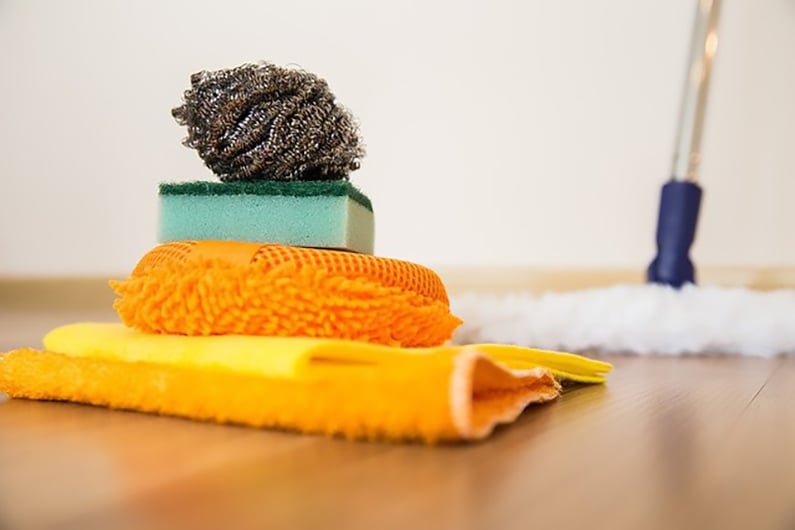
Nothing would have a customer screaming out your door than seeing a rat scurrying along the floor. So get rid of all rodents and pests fast! Pest infestation is common in kitchens, and restaurants, for one, have higher chances of having these pests munch on the leftovers at night.
But, on witnessing an incident like the above, the word can spread faster than fire and would leave you from a hundred to zero customers within hours.
Not to forget the penalties you’ll have or even closure by the regulating authority of the state.
So, it’s best to get an exterminator to get the job done regularly.
For further sanitation environment
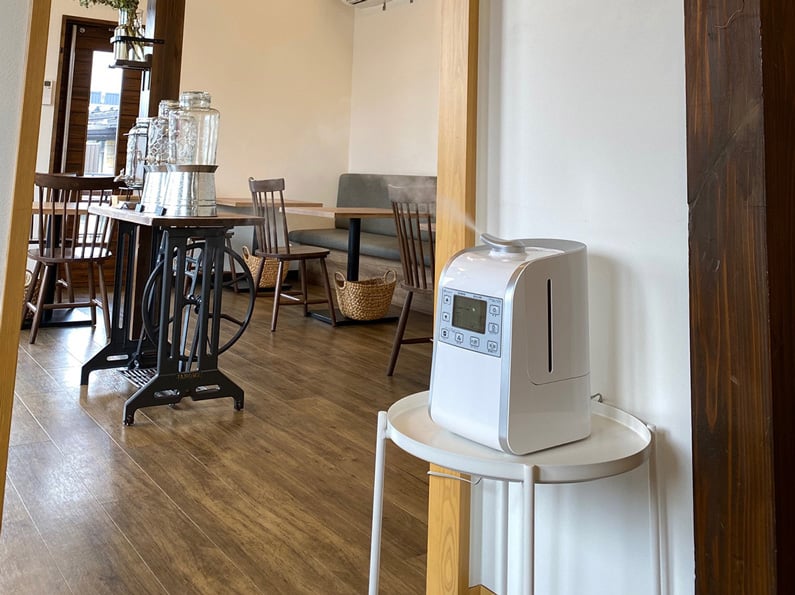
After you have done the necessary things such as regular cleaning and employee training, consider spraying a disinfectant to further improve your sanitation environment.
Use hypochlorous acid water (HOCl, also known as ECA), which is safe for the human body and is also used for food washing. By spraying it in a special fogger, you can reach every corner of the room without much effort, and it is also effective in reducing odors in foodstuffs and spaces that are difficult to ventilate.
Reference: HOCL (HYPOCHLOROUS ACID WATER): ALL YOU NEED TO KNOW
Reference: 4 BENEFITS OF HOCL FOGGING (HYPOCHLOROUS ACID)
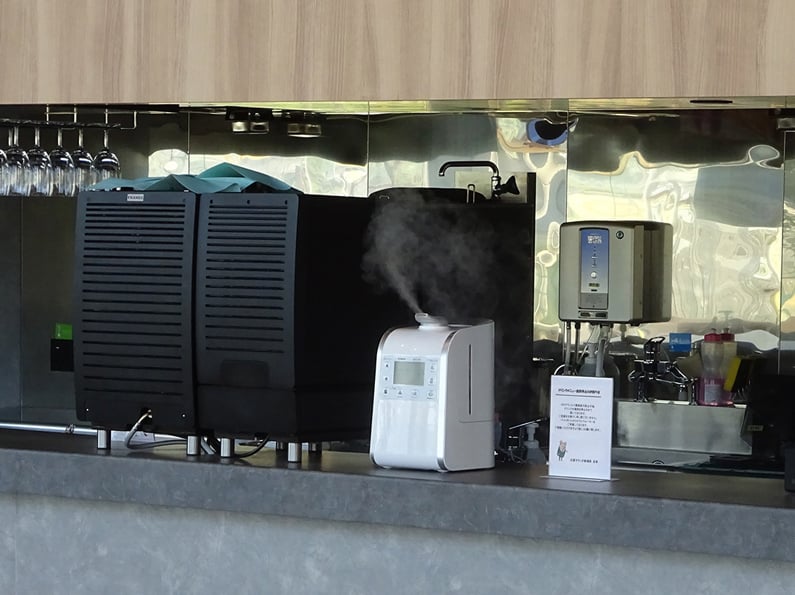
If you would like to know more about this system, please contact us using the form below.
Conclusion
Hygiene and regular cleaning are essential for maintaining a good business. In addition, if you want loyal customers, you need to ensure they have an excellent overall experience at your place.
It’s all about the ambiance, and hygiene, for one plays an essential part in it.



